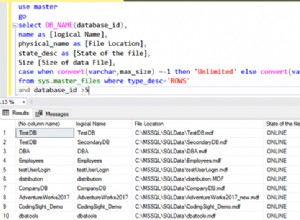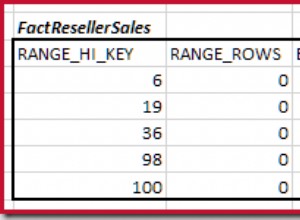Dies sollte wie erwähnt hier funktionieren . Ich glaube nicht, dass an diesem Code-Snippet irgendetwas falsch ist.
import os
if os.getenv('SERVER_SOFTWARE', '').startswith('Google App Engine'):
# Running on production App Engine, so use a Google Cloud SQL database.
DATABASES = {
'default': {
'ENGINE': 'django.db.backends.mysql',
'HOST': '/cloudsql/your-project-id:your-instance-name',
'NAME': 'django_test',
'USER': 'root',
}
}
elif os.getenv('SETTINGS_MODE') == 'prod':
# Running in development, but want to access the Google Cloud SQL instance
# in production.
DATABASES = {
'default': {
'ENGINE': 'google.appengine.ext.django.backends.rdbms',
'INSTANCE': 'your-project-id:your-instance-name',
'NAME': 'django_test',
'USER': 'root',
}
}
else:
# Running in development, so use a local MySQL database.
DATABASES = {
'default': {
'ENGINE': 'django.db.backends.mysql',
'NAME': 'django_test',
'USER': 'root',
'PASSWORD': 'root',
}
}
Ich habe auch Google App Engine mit Cloudsql in Django verwendet und hier sind die Einstellungen, die ich für die Bereitstellung und lokale Entwicklung verwendet habe, und es funktioniert einwandfrei !!
Einstellungen für die Bereitstellung in GAE
DATABASES = {
'default': {
'ENGINE': 'django.db.backends.mysql',
'HOST': '/cloudsql/instance:appid',
'NAME': 'name_of_database',
'USER': 'mysql_user',
}
}
Einstellungen für die lokale Entwicklung mit App Engine SDK
DATABASES = {
'default': {
'ENGINE': 'django.db.backends.mysql',
'NAME': 'name_of_database',
'USER': 'mysql_user',
'PASSWORD': 'pwd',
'HOST': 'ip_address_of_cloudsql_instance', # Empty for localhost through domain sockets or '127.0.0.1' for localhost through TCP.
}
}




